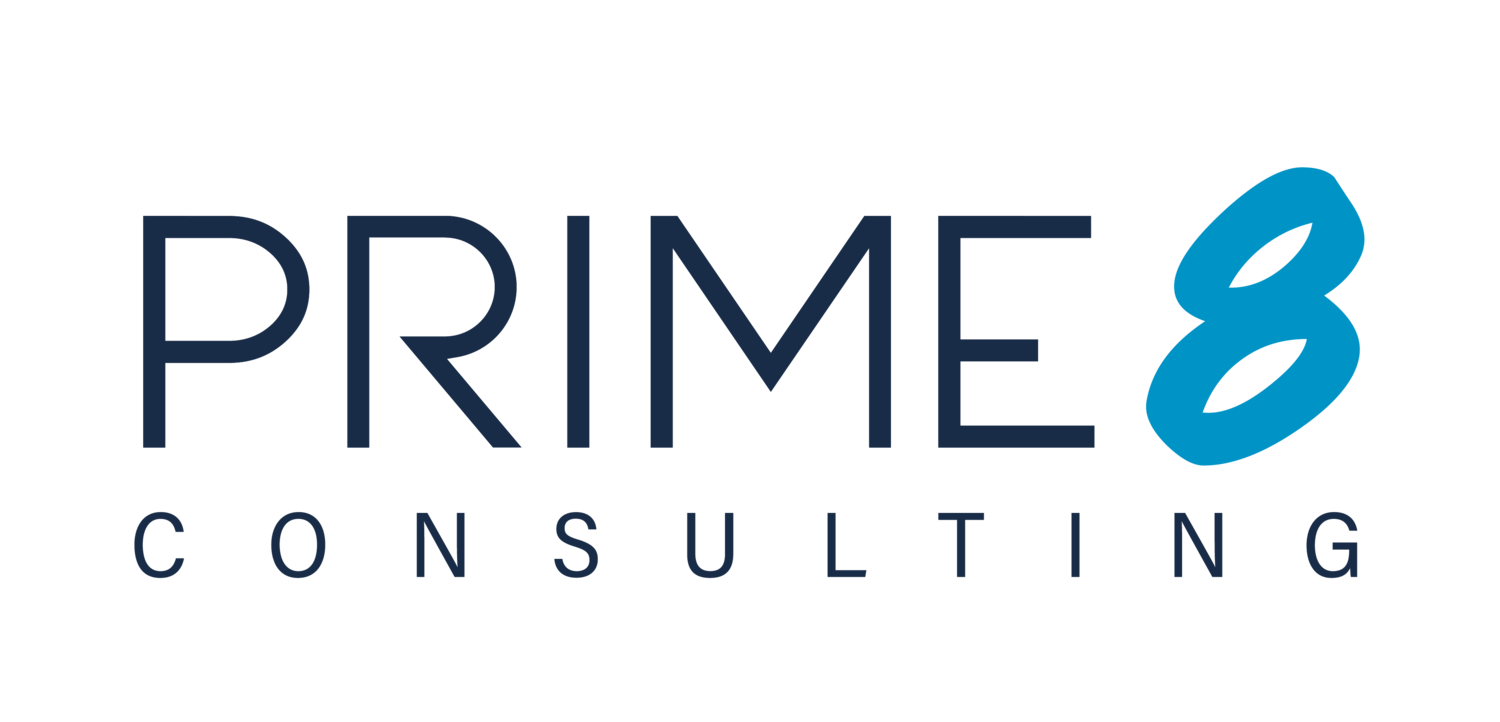Choosing the Right AI Tools for Sales
Highlights
AI integration in sales is becoming easier thanks to a wide range of publicly available tools.
AI-based solutions are now available to address sales challenges such as audience segmentation, CRM data management, customer retention and more.
Integrating AI into marketing demands careful consideration of human, business, and technical factors.
Right now, we’re seeing a wave of new applications enabling artificial intelligence (AI) integration into sales processes. But what’s the secret to choosing the right AI tools for sales success?
In this article, we’ll tackle this question head on. The first two articles in this series looked at the impact of AI on people and processes. Here, we’ll look specifically at choosing the right AI tools and how they can be integrated into existing sales enablement frameworks.
OVERVIEW OF AI TOOLS IN SALES
Integrating AI capabilities into today’s digital processes represents a significant departure from traditional program design. In the past, software programs were largely designed to uniformly deploy predetermined instructions across highly structured data sets.
By contrast, AI-based software uses machine learning algorithms that can weigh different factors individually and apply statistical reasoning across a full range of structured and unstructured data.
All of this makes AI-based solutions more versatile and able to mimic human-like capabilities for making predictions and decisions. A solution using AI can also address much larger data sets and get better as it processes more information, a feature that is absent from traditional software and brings AI closer to human intelligence.
However, AI by itself is not a magic elixir. Taking full advantage of AI tools for sales transformation and success involves careful, upfront preparation in terms of skills, data management, and integration with existing systems, such as customer relationship management (CRM) solutions.
5 Ways to Use AI in Sales
Let’s look at five different kinds of AI-based tools that are making their presence felt in sales.
CUSTOMER SEGMENTATION
Segmenting potential customers is typically one of the first steps in any sales outreach effort. You need to have a sense of your different audiences — needs, sensibilities, peculiarities — in order to tailor messaging and offers effectively.
Because AI can process massive amounts of both structured and unstructured data (emails, recordings of sales conversations), it is able to identify patterns, correlations, and trends that traditional segmentation strategies may miss.
Any AI effort is going to be shaped by upfront decisions you make about the numerous segmentation models to choose from (e.g., behavioral, psychographic, technographic). Ultimately, the approach you take will also be shaped by the information you have at your disposal.
Adobe Audience Manager and Twilio Segment are two examples of solutions that use AI to unify and segment data.
ENHANCING CRM
CRM systems have long played a major role in sales operations, but often their function is skewed toward overall analysis — such as reporting on the state of the sales funnel or improving the accuracy of forecasts — rather than creating improvement in day-to-day sales outreach.
Front-line sales professionals and managers often rebel at using CRM systems because they find it burdensome to keep manually entering data that may have little immediate impact on meeting their quotas.
Now you can put AI to work monitoring customer interactions (emails, chats, phone calls, etc.), capturing critical information, and automatically populating the CRM. This not only eliminates a lot of data entry drudgery for sales reps, it also helps enhance the role of the CRM as a dependable “single source of truth” for supporting sales.
HubSpot, Microsoft Dynamics, Salesforce, Zoho and other CRM providers have all introduced AI-based capabilities that, among other things, automate CRM data entry tasks.
CREATING MARKETING CONTENT
It’s not unusual for sales reps to have outsized personalities that make them highly successful on phone calls and in live meetings but leave them struggling to maintain that same energy in written communications like emails and proposals.
Generative AI platforms — with ChatGPT being the best known — have been the subject of a lot of attention (and concern) thanks to their ability to generate completely new content.
In sales, a typical example might be for a sales rep to use a generative AI solution to draft a personalized email to a specific range of prospects (e.g., ones that have received formal sales proposals). Or generative AI can take an existing email for one audience and re-purpose that message for a different audience. Or convert an email into a LinkedIn message or a webpage into a brochure.
Of course, using AI to create a message and then hitting send is never a good idea. Experience has shown that generative AI is prone to error. Also, it’s important to keep in mind that generative AI tools are essentially collecting, analyzing, and repackaging existing data, not producing totally new ideas.
Sales reps using AI on its own are likely to end up sounding similar to other sales reps at other companies using AI. For that reason, it’s best to use the content produced by generative AI as a starting point and make the final outcome your own.
As mentioned earlier, ChatGPT is today’s best-known generative AI tool. Jasper is another popular content creation tool for everything from blog posts to email subject lines. For a quick way to generate images for social media or blog posts, Midjourney is a widely used option.
STAYING COMPLIANT AND ON BRAND
Whether you’re creating communications from scratch or producing them via generative AI, you want to make sure that anything going to customers is accurate and (particularly in regulated industries) fully legal. Also, you want your message to stay on brand. That’s not easy if you have a wide range of communications — phone calls, emails, blog posts, social media posts — being produced by employees, partners, agencies, etc.
As it turns out, AI is pretty good at helping with tasks like monitoring and analyzing your different marketing channels, flagging potential issues, and suggesting options for remediation.
Services such as Performline and Red Marker deliver AI-driven brand and compliance monitoring solutions.
DATA-DRIVEN MARKETING
Data analytics are critical to the success of any long-term marketing outreach. And as the amount of data at our disposal keeps growing, you’ll need new tools. An AI-based solution can analyze data at a scale and speed that were previously impossible. And once processes are set up, it can do this over and over again.
As a result, AI and data analytics for business open the door for organizations to adopt true data-driven decision making. This is an area where Prime 8 works extensively with clients, and we’ve written extensively about it. To learn more, read AI in Data Analytics: The Future of Business Intelligence.
Solutions such as Microsoft Power BI and Salesforce’s Tableau let you create dashboards and interactive reports to discover data, visualize, instantly see anomalies, do sentiment analysis, find the key influence factors, visualize data across multiple dimensions, and much more.
Choosing the Right AI Tools
Bringing any kind of AI into the marketing workflow demands careful consideration of human, business and technical factors. Start by clearly outlining your sales and marketing objectives and the specific areas where you would like AI to add value.
It’s also essential to ensure you have access to the data needed to make AI effective — you need to walk the walk in basic data management before you can run the AI marathon.
While there are many AI solutions tailored to sales and marketing, take the time to evaluate their features, scalability, integration capabilities, and user-friendliness. In particular, look for AI tools that can enhance existing systems that are working effectively now (e.g., CRM, email marketing, analytics) or can deliver capabilities that are keeping those existing solutions from being effective.
At all costs, resist the temptation to introduce new solutions that create more data silos.
Maximizing AI Integration in Sales with Prime 8
For AI and data strategies in general, Prime 8 offers an array of capabilities based on years of experience.
Technology implementation and integration: Use our experience in technology implementation to select and integrate the most effective AI tools for sales enablement.
Risk assessment and mitigation: Take advantage of Prime 8's risk assessment expertise to foresee and mitigate potential challenges in implementing AI tools.
Data organization. Our business intelligence consultants and data analysts can help you ready your data for AI.
Customized training on AI tools: Rely on our specialized training sessions, part of our digital learning services, to ensure effective use of AI tools in sales.
Digital marketing strategy. Our digital marketing consultants can help you craft AI-assisted marketing plans that get results.
Performance benchmarking: Using our benchmarking services to measure the effectiveness of AI tools against industry standards.
When you’re ready to put AI to work in sales or other business processes, talk to Prime 8. Let our business intelligence consultants help put your AI strategy on the right track.

































